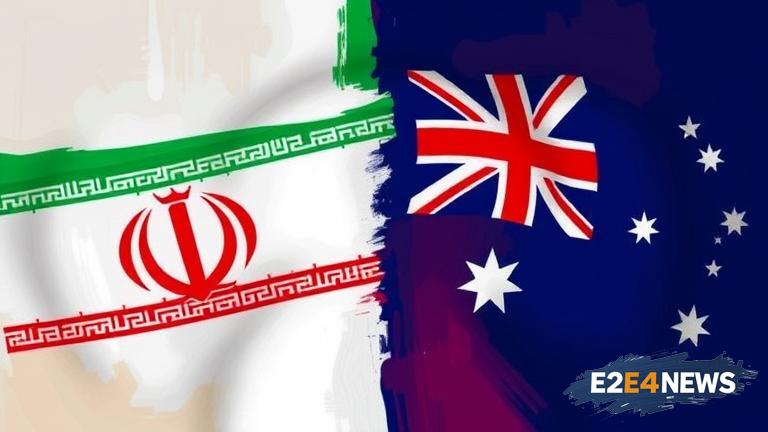The diplomatic tensions between Iran and Australia have reached a boiling point after Australia expelled an Iranian envoy, prompting Tehran to vow reciprocal action. The move has been seen as a significant escalation of the diplomatic row between the two countries. The Iranian government has stated that it will not hesitate to take retaliatory measures against Australia, citing the need to protect its national interests. The expulsion of the Iranian envoy has been widely condemned by Iranian officials, who have described the move as ‘unfriendly’ and ‘unacceptable’. The diplomatic row between Iran and Australia has been simmering for several months, with tensions rising over a range of issues, including trade, security, and human rights. The latest development has raised concerns about the potential for further escalation, with some analysts warning of a possible breakdown in relations between the two countries. The Iranian government has long been critical of Australia’s stance on key regional issues, including the conflict in Yemen and the Israeli-Palestinian dispute. Australia, on the other hand, has been vocal in its criticism of Iran’s human rights record and its support for militant groups in the region. The expulsion of the Iranian envoy has been seen as a significant blow to relations between the two countries, with some analysts warning that it could have far-reaching consequences for regional stability. The Iranian government has stated that it will continue to pursue its national interests, regardless of the consequences, and has warned Australia against taking any further provocative actions. The diplomatic row has also raised concerns about the potential for a wider conflict in the region, with some analysts warning of a possible escalation of tensions between Iran and other Western countries. The United States, in particular, has been watching the situation closely, with some officials warning of a possible increase in tensions between Iran and its allies. The European Union has also expressed concern about the diplomatic row, with some officials calling for calm and restraint on both sides. Despite the tensions, there are still hopes that the diplomatic row can be resolved through dialogue and diplomacy. The Iranian government has stated that it is willing to engage in talks with Australia, but only if the country is willing to respect its national interests. The Australian government, on the other hand, has stated that it will continue to pursue its own national interests, regardless of the consequences. The diplomatic row has also raised questions about the role of diplomacy in resolving conflicts, with some analysts warning that the expulsion of the Iranian envoy could have set a dangerous precedent. The situation remains fluid, with developments unfolding rapidly. The international community is watching the situation closely, with many calling for calm and restraint on both sides. The diplomatic row has significant implications for regional stability, with some analysts warning of a possible escalation of tensions between Iran and other Western countries. The situation is complex, with multiple factors at play, and it remains to be seen how the situation will unfold in the coming days and weeks. The Iranian government has stated that it will continue to pursue its national interests, regardless of the consequences, and has warned Australia against taking any further provocative actions. The Australian government, on the other hand, has stated that it will continue to pursue its own national interests, regardless of the consequences. The diplomatic row has raised concerns about the potential for a wider conflict in the region, with some analysts warning of a possible escalation of tensions between Iran and other Western countries.
